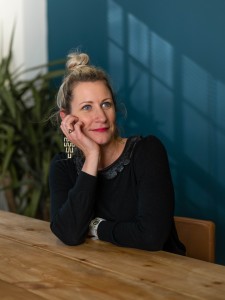International Women’s Day has been celebrated since the early 1900s. Its actual origins are not known but it is attributed to a march through the streets of New York City in 1908 when 15,000 women turned out calling for equality, voting rights, and better pay and working hours.
While arguably some of the original demands have been satisfied – we have the vote – society still has some way to go and the annual day of celebration on March 8 is just as relevant today as it was more than a century ago. 
This year’s day of celebration on Sunday will have the theme #EachforEqual. While I feel fortunate to have seen wholesale changes in some respects throughout my lifetime, there are still many instances both personally and professionally where I see the issue of gender, equality, and crucially, inclusion, still lacking.
Nowhere is this more relevant than in business. In an era where we are still striving to close the gender pay gap and where boards and senior management teams are still a long way from a 50/50 balance, the commercial world is a litmus test for equal rights when it comes to gender parity.
The FTSE 100 target for women on boards was set at 33% in 2011. This target looks set to be met this year with 2019’s figure of 32.4% – a major step forward in less than a decade.
This approach needs to filter down to the many owner-managed SME businesses where there are still many all-male teams. Bristol’s creative sector – my own industry – has many examples of female-owned and managed businesses.
We are a board of four women and one man and very proud of our inclusive and balanced culture – but it has not come without focus and dedicated action.
Why does this matter in the commercial world? This is not just a moral issue. It is proven that businesses which are genuinely inclusive and with balanced representation on gender, background, ethnicity, ability and religion are, in fact, more profitable overall.
A report published by Credit Suisse in 2016 made the claim that firms were 50% more profitable where women made up at least 15% of the senior management.
However, a word of caution – gender diversity must extend to company values and culture. Women on boards operating in a commercial environment that is hostile to them are not likely make a tangible impact to the bottom line.
FTSE companies have, since 2017/18, been required by law to publish their position on gender pay – the difference between average hourly earnings of men and women. Figures show the pay gap is largest in financial, insurance, scientific and technical industries – all traditionally male-dominated environments.
Industries where there are greater numbers of women have less issue around the gender pay gap – which in the UK currently stands at 17.3% for all workers and 8.9% for full-time workers.
In acknowledging the many and varied nuances of gender equality in business it’s vital that every organisation has the issue of gender on their radar. No matter the size or the industry, a positive focus will undoubtedly lead to greater success.
International Women’s Day is as much for men as it is for women – we all have daughters, sisters, mothers and female friends. Men have an important role to play. International Women’s Day is not an observational activity for men in business.
I have been mentored by – and today work with – some incredibly inspiring and talented men who I know without hesitation see me as their equal.
However, I still come across situations where this is not the case. Comments, jokes and even ‘compliments’ – “your proposal was so good I thought it had been written by a man” (believe it or not, this was said to me at a meeting two years ago) – are still very much the norm in some circles.
But things are changing. Gender parity will deliver greater quality of life for women and men. I know many men who want to spend more time with their families. I have met (only a couple) of men who are taking extended or shared paternity leave – change is happening, although progress can be slow.
As Emeline Pankhurst said, “deeds, not words” should be our collective mantra. We can each do something towards reaching greater equality.
Succession planning for the future requires focus, action and tangible, measured outcomes. Mentoring schemes; equal pay reviews; the eradication of machismo work cultures and building a culture where empowerment, equality and vitally, flexibility of working styles, hours and locations are actually lived not just written in a policy, are just a few of the ways we can move the dial.
I salute the many inspiring and successful Bristol businesswomen who I am privileged to meet every week and have in my network. You all have a story to tell and have blazed a trail. Thankfully, there are too many of you to mention in this article – and that feels very positive for the future.
Happy International Women’s Day!
Joanna Randall is managing director of Bristol-based PR and communications agency Purplefish






























